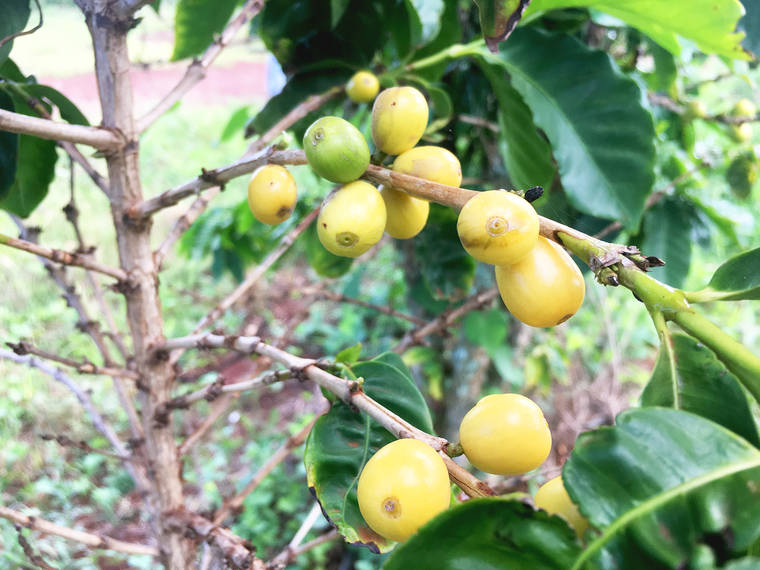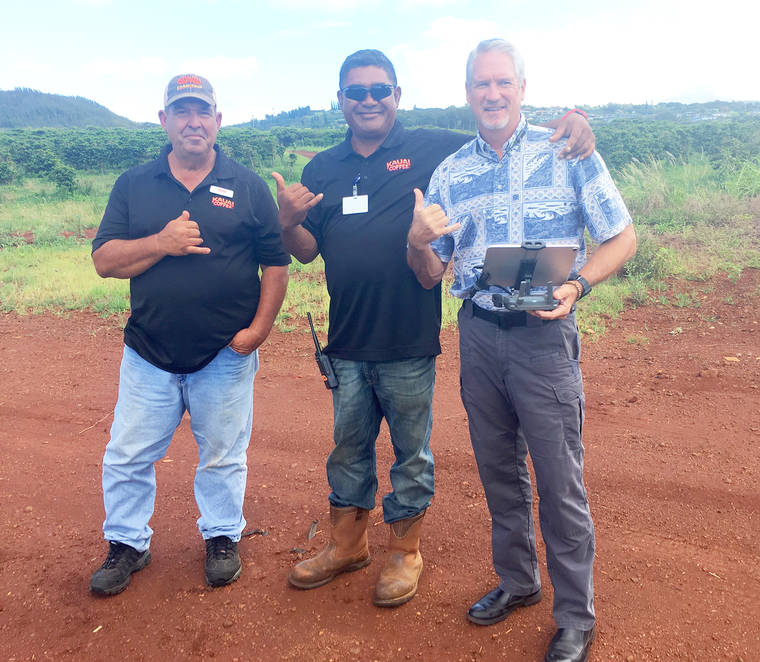Kauai Coffee certified non-GMO


KALAHEO — Harvesters are getting tuned up and coffee cherries are transitioning from green to yellow and red as Kauai Coffee Company’s busiest season of the year approaches.
September brings harvest season at America’s largest coffee farm, and it’s a nonstop endeavor, with workers serving shifts in a 24-hour harvest cycle. This year is extra special, too, as the farm will be putting newly certified coffee on the market.
The farm was audited in late 2018 for Rainforest Alliance, Fair Trade and Non-GMO certifications, and secured all three with flying colors.
Fred Cowell, the company’s general manager, points out there are steps within the certifications that can be achieved, but receiving the certifications is a big deal.
“This year’s harvest, starting in September, all the coffee going to market is going to be certified. The bags will change. They’ll be carrying the logos and everything will be available here in the state of Hawaii certified,” Cowell said.
The three certifications work in concert, with Rainforest Alliance covering mainly environmental aspects of production, Fair Trade focusing on the treatment of people, and the Non-GMO Certification confirming the coffee isn’t genetically modified.
“It’s an outside body saying ‘You’re doing the right things right,’” Cowell said. “Locally, it’s someone else saying, ‘You’re pono.’”
Some of those practices for receiving the certifications include ensuring safe conditions and fair pay for workers, lowering pesticide use and improving soil quality, promoting biodiversity and conservation, and having effective planning and management on the farm.
Cowell says his favorite part of the new certifications is a piece that comes with the Fair Trade certification — one that could bring about $100,000 a year in funding to Kauai.
“The coolest part about the Fair Trade is that it carries a premium, which means for every pound of coffee sold into the marketplace, a premium comes back to give back to the community,” Cowell said.
Kauai Coffee will establish a Fair Trade committee within the company that will decide where to direct those funds. That could be in the form of scholarships or donations to schools or organizations, to name a few.
“It’s going to force my Fair Trade Committee to think about the needs of the community,” he said.
•••
Jessica Else, environment reporter, can be reached at 245-0452 or jelse@thegardenisland.com.




There isn’t actually any GMO coffee on the market, so it’s very sad to see Kauai Coffee pandering to this kind of fear-mongering, falsehood-based marketing ploy — especially considering how the company was attacked by anti-GMO activists in the 2491 anti-ag campaign.
I am wondering whether or not the “Rainforest Alliance” (covering mainly environmental aspects of production) considered the amount of herbicides and pesticides used on Kauai Coffee lands. Certainly, when viewing the crops from the road, it appears that plenty of herbicides are utilized in the rows of coffee (and that is no way to “improve soil quality”), and I suspect that Kauai Coffee is also using pesticides (and this article confirms such use, even if somewhat diminished from past use) to ensure less loss to pests. When i see an organic certification on bags of Kauai coffee, I may consider buying a bag to see if their quality of their coffee has improved.
if they still spray pesticides what difference does it make? pesticides are the actual problem
It’s not difficult to get a non-GMO certification when there is no genetically modified coffee in existence within the market. This certification is ridiculous and is just another way for Kauai Coffee Company (and other brands) to charge more for the same product.